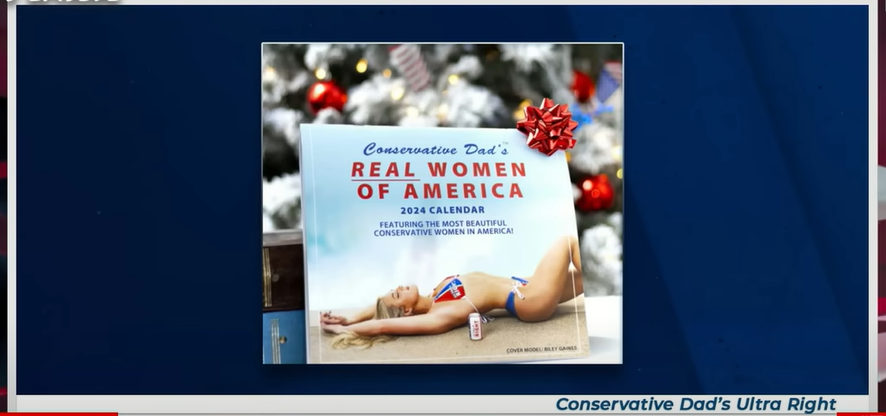A new limited edition pinup calendar has angered some conservatives who believe the images of the women in it are too provocative, causing a debate over whether the calendar aligns with conservative values.
The “Real Women of America 2024 Calendar” was released earlier this month by Conservative Dad’s Ultra Right Beer in “celebration of conservative women who are fighting woke extremists to preserve real women,” as phrased by the company’s promotion of it.
It features several well-known conservative women, including radio host Dana Loesch, former House candidate Kim Klacik, professional swimmer Riley Gaines, and author Ashley St. Clair, among others.
Yet the beer calendar has turned out to be heavily criticized, with some conservatives calling the calendar “demonic” for sexualizing women and lacking images of them with children, as it is being marketed to conservative dads.

Christian activist Morgan Ariel publicly called out Ultra Right Beer on X, claiming, “A conservative beer calendar sexualizing women in our movement and marketing it towards married conservative men is DEMONIC.”
A conservative Christian rapper, Bryson Gray, also criticized the calendar for being suggestive and called the pictures “pseudo-soft porn,” accusing Ultra Right Beer of using Christian imagery to get men to lust after the featured women.
In reaction to the negative responses, the CEO of Conservative Dad’s Ultra Right Beer, Seth Weathers, has dubbed the reactions to the calendar as “#CalendarGate” and has continuously defended the pinup images on social media. He claimed that it was “great news” that people were upset about the calendar as it would help drive up sales, 10 percent of which are being donated to the Riley Gaines Center and its objective to keep trans women out of cis women sports.
Weathers described the “anti-woke” beer company as a response to Bud Light’s decision to give a sponsorship to trans activist and social media influencer Dylan Mulvaney. In a launch video released earlier in the year, Weathers said his business was an alternative for conservatives who didn’t want to give money to “woke companies.”
However, this attempt to unite conservatives on a consensus of what womanhood looks like seems to be controversial to many who don’t endorse the use of partial nudity.












